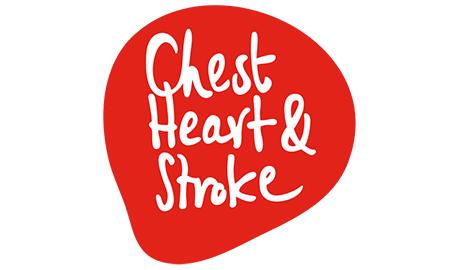Stress & Heart Disease - What's The Link?
Heart HealthWhile stress is not a direct risk factor for chest, heart and stroke conditions, it does impact upon your health, particularly as many people cope with it by smoking, drinking too much alcohol and overeating. These can all increase your risk of developing high blood pressure, cardiovascular and respiratory diseases.
Stress is a natural reaction in the body. It is designed to give us short bursts of heightened energy or awareness as part of our instinctive fight or flight reaction which helps us confront or run away from danger. While our ancestors faced danger from predators and their environment, nowadays we are more likely to experience stress because of worries about relationships, money, work, unemployment or ill-health.
Pressure can be good for us as it can help us get things done but excessive stress over a long period of time can make us ill.
Common signs of stress include:
- Sleeping problems
- Sweating
- Loss of appetite
- Difficulty concentrating
What can I do to manage my stress?
Making changes to your lifestyle can help you manage stress and improve your wellbeing. These may be big changes, such as switching jobs, or small changes, like taking up a hobby. Try to identify what makes you feel stressed at home or at work. Understanding the causes is the best way to help you avoid or cope with stressors in your life.
Talking to your family and friends or to your GP can help if you feel very anxious or stressed. There are also a variety of tools and techniques for managing stress.
Top tips for managing stress
- Eat Healthily: during periods of stress it is more important than ever to eat well, as healthy eating can have a positive effect on your health and emotional wellbeing. We may turn to comfort-eating unhealthy foods to cope with stress. However, this can have a negative impact on your heart health, so should be avoided.
- Be physically active: physical activity releases feel-good hormones in the brain, improving both our physical and mental wellbeing. Get out with the kids or with friends, take the dog for a walk, or take active breaks at work.
- Talk to someone: talking about your feelings can really help identify what is causing the additional stress
- Give something back: volunteering at a local club, church or for a voluntary or community organisation can give you a break and help take your mind off your stresses. Helping others can also help bring perspective to stressful situations.
- Learn how to relax: Find something that helps you to unwind. This could be anything from exercise or sport, to a hobby like crafting or reading, or even simply listening to music or going for a walk. Taking steps to unwind can help stop stress building up and develop a Well Mind feeling.
For more information on stress & stress management videos, click this link.



























































